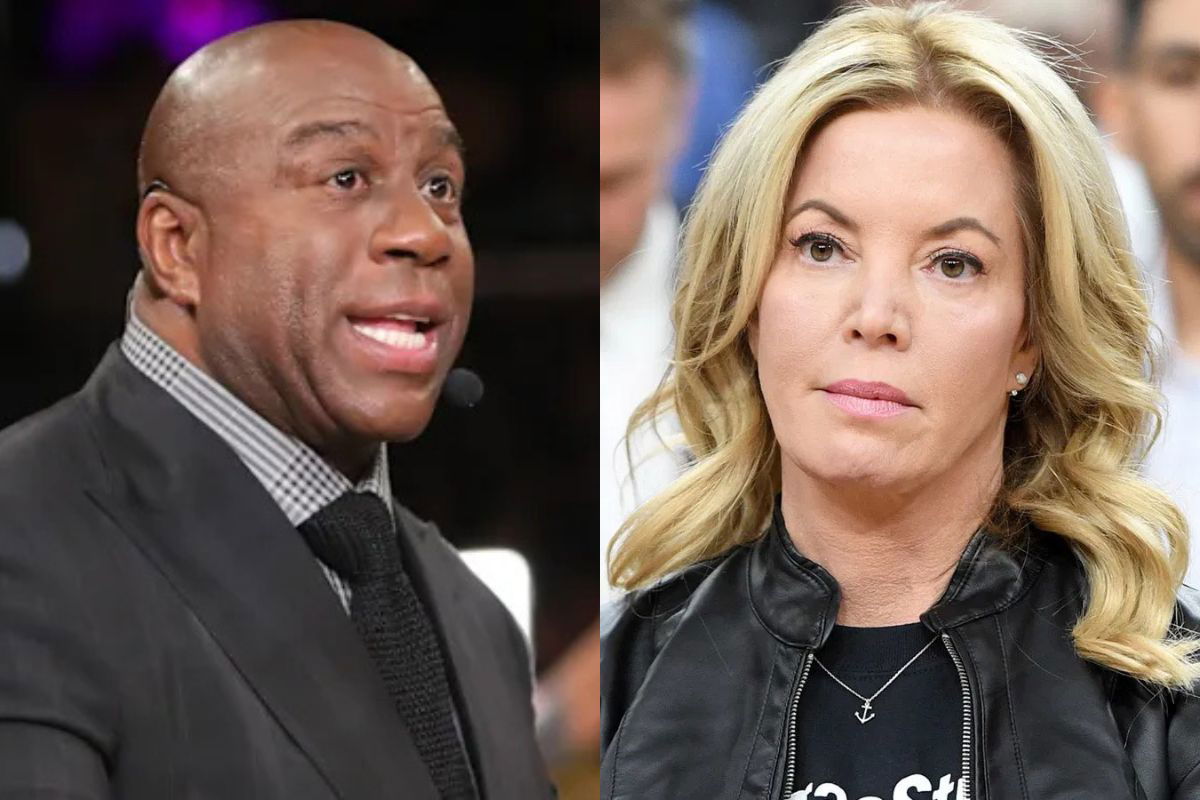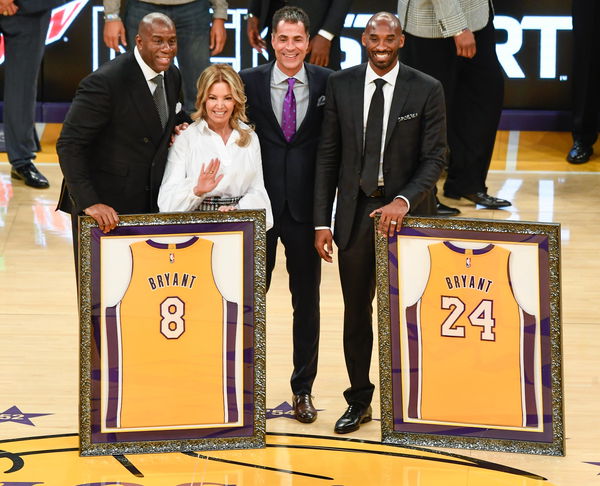



Magic Johnson is synonymous with the Los Angeles Lakers. He’s Showtime. He’s a legend. He’s a part-owner. But as the biggest ownership shake-up in the team’s history went down, Magic was nowhere near L.A. He was on a boat. The optics were… interesting, to say the least.
Watch What’s Trending Now!
And this wasn’t just any boat trip. This was Magic’s famous annual yacht vacation, a tradition that has become legendary in its own right. We’re talking about a six-week, multi-country tour on the Phoenix 2, a mega-yacht that costs a reported $7.5 million to charter for that length of time. This is the trip where he hosts his A-list friends like Michael Jordan and Samuel L. Jackson. He even gave his followers a little peek into the good life, posting an Instagram story of a stunning rooftop dinner. “Having dinner on the top of the yacht tonight!” he wrote. “Look at this beautiful table setting and the delicious food the chefs are making for us!”
But while Magic was enjoying his “delicious food,” his “sister” and Lakers controlling owner, Jeanie Buss, was finalizing a deal that would change the franchise forever. In a move that seemed to happen almost silently, reports broke that the Buss family had agreed to sell their majority stake in the team to Mark Walter, CEO of TWG Global.
This actually feels like the end of an era that began when Dr. Jerry Buss bought the team in 1979 for just $67.5 million. So why, after more than four decades, would the family sell? The answer seems to be a mix of smart business and complicated family dynamics. First, the timing was perfect. With the Lakers‘ valuation soaring to a staggering $10 billion—a massive jump from even the $7 billion Forbes estimated earlier this year—it was a golden opportunity to cash in.
That valuation, which surpasses the recent $6.1 billion sale of the Celtics, is fueled by the team’s massive popularity and a lucrative $400 million annual TV deal. On top of that, reports have long hinted at internal power struggles between Jeanie and her siblings, Jim and Johnny, ever since their father’s passing in 2013. A sale now ensures that all of Jerry Buss’s children can secure their piece of the fortune he built, ending any lingering family tension.
So what does Magic Johnson think of this deal? He took to social media from his yacht to celebrate the deal. “Job well done to my sister Jeanie Buss for striking an incredible deal and picking the right person to carry on the @Lakers legacy,” he wrote, calling himself “so so SO happy and excited.” He even took a playful victory lap at the expense of the Lakers’ biggest rival: “Just like I thought, when the Celtics sold for $6B, I knew the Lakers were worth $10B!”

USA Today via Reuters
Dec 18, 2017; Los Angeles, CA, USA; Lakers team executives Earvin “Magic” Johnson, Jeannie Buss and Rob Pelinka pose with Kobe Bryant during a halftime ceremony retiring Bryant’s uniform numbers at Staples Center. Mandatory Credit: Robert Hanashiro-USA TODAY Sports
Magic’s endorsement is a huge deal. No one is more connected to the Buss family legacy than him. Dr. Buss bought the team the same year he drafted Johnson, and together they built the Showtime dynasty. He even came back to run the front office for Jeanie for a while. So when Magic Johnson gives his blessing, it’s basically him telling Lakers fans that the Showtime legacy is in good hands.
Why this is a game-changer for the Lakers
Magic Johnson’s excitement isn’t just about the money, but also about what this sale represents. For the first time in 46 years, the Lakers are no longer a family business. They are now owned by a man with incredibly deep pockets and a proven track record of winning. And for a franchise that has felt a bit stuck in the past, this is a massive shift.
The new majority owner, Mark Walter, is a name that should have Lakers fans thrilled. He’s the chairman of the Los Angeles Dodgers, a team he has transformed into a perennial powerhouse with a “win at all costs” mentality. As L.A. Times columnist Bill Plaschke put it, “Since 2013, Walter’s team has been in the playoffs every year, won their division 11 of those 12 years, appeared in four World Series and won two of them.” The Lakers, in that same span, have won just one title. That’s the difference a modern, deep-pocketed ownership group can make.
Magic himself pointed to Walter’s history with the Dodgers as the primary reason for his optimism. “Mark Walter is the best choice and will be the best caretaker of the Laker brand,” he wrote. “The proof is in the pudding… he will put in the resources needed to win!” Those resources are exactly what the Lakers need as they enter the Luka Dončić era.
With a young superstar to build around and LeBron James still playing at a high level, the time to go all-in is now. Walter’s arrival signals a willingness to spend on everything from superstar talent to a top-tier front office, something the Buss family has been criticized for not doing in recent years. As Kevin O’Connor of The Ringer noted, this means “deep pockets for the Luka Doncic era.”
This move is a clear pivot away from the old way of doing things. Under Jeanie Buss, the Lakers have been known for their loyalty, sometimes to a fault, relying on a small circle of trusted friends and family like Kurt and Linda Rambis and Rob Pelinka. With Walter at the helm, the expectation is that those sentimental ties will be replaced by a ruthless pursuit of championships, much like he’s done with the Dodgers.
So while the Buss family name will forever be linked to the golden era of Showtime, this sale marks the beginning of a new chapter. It’s a chapter that will be defined by big money, big moves, and a singular focus on winning. And who better to usher it in than the man who started it all, giving his blessing from the deck of his yacht?

